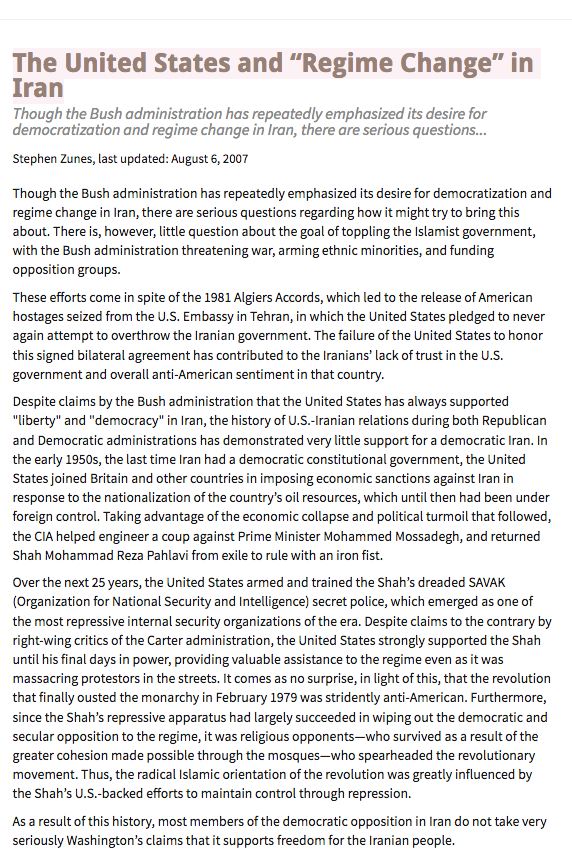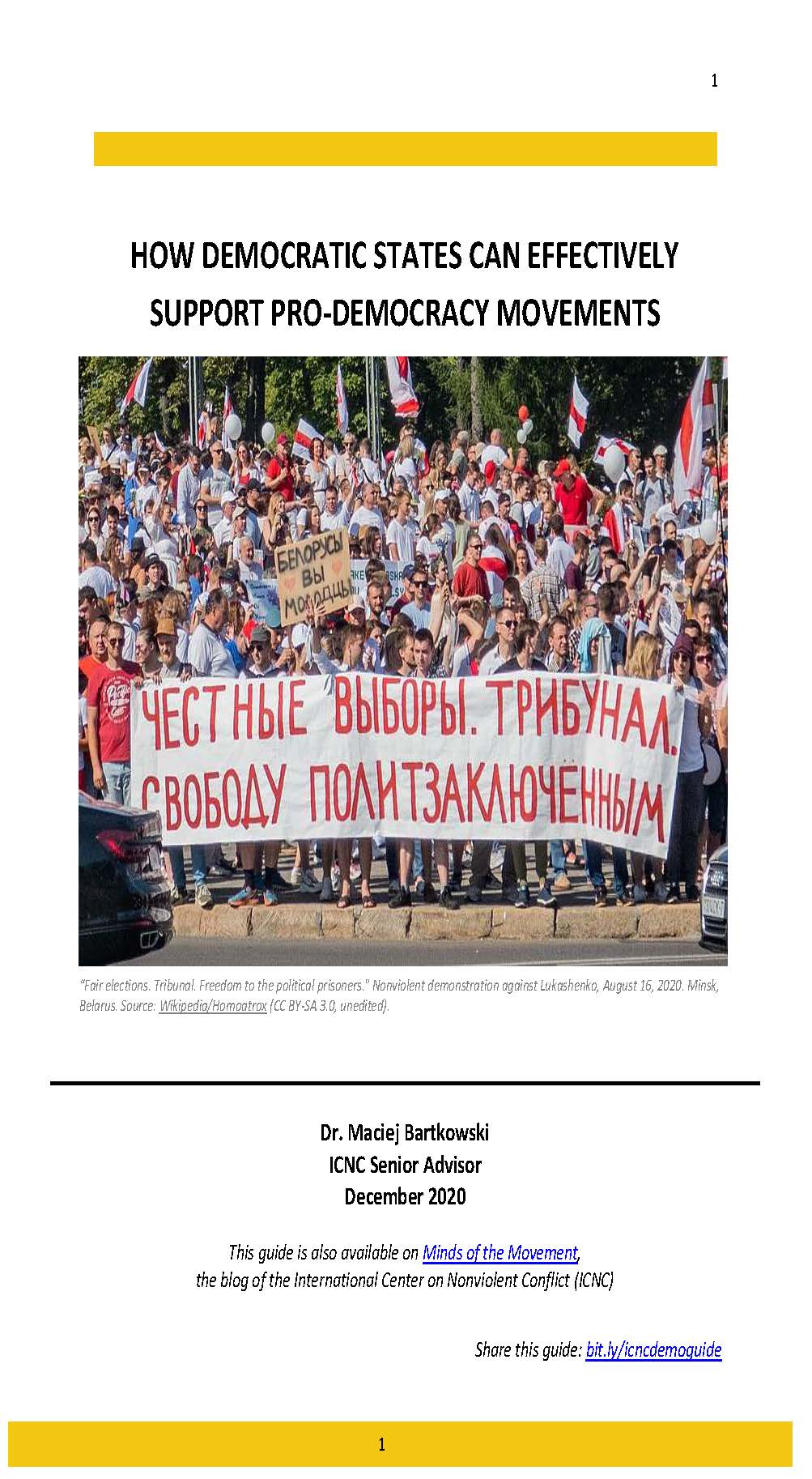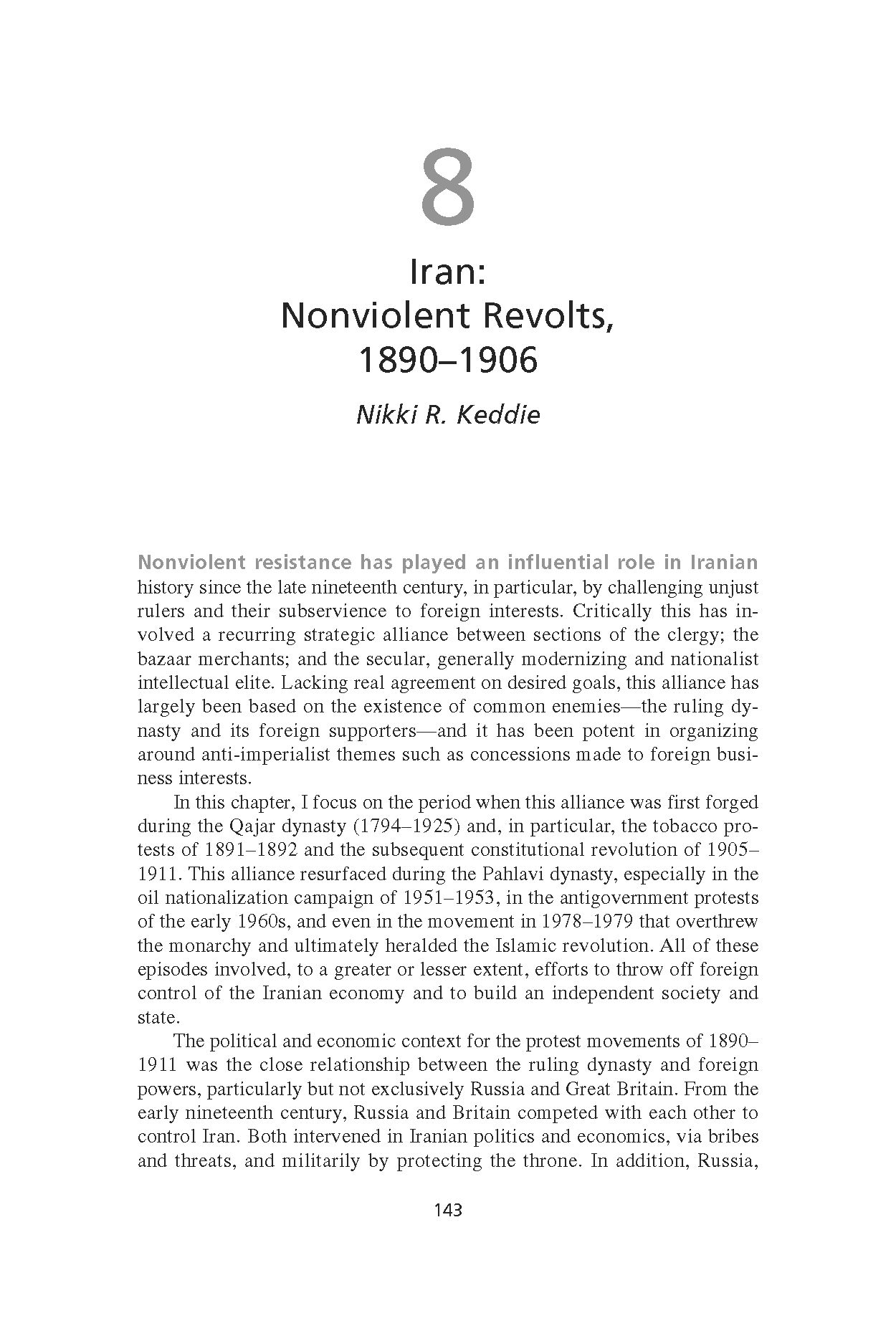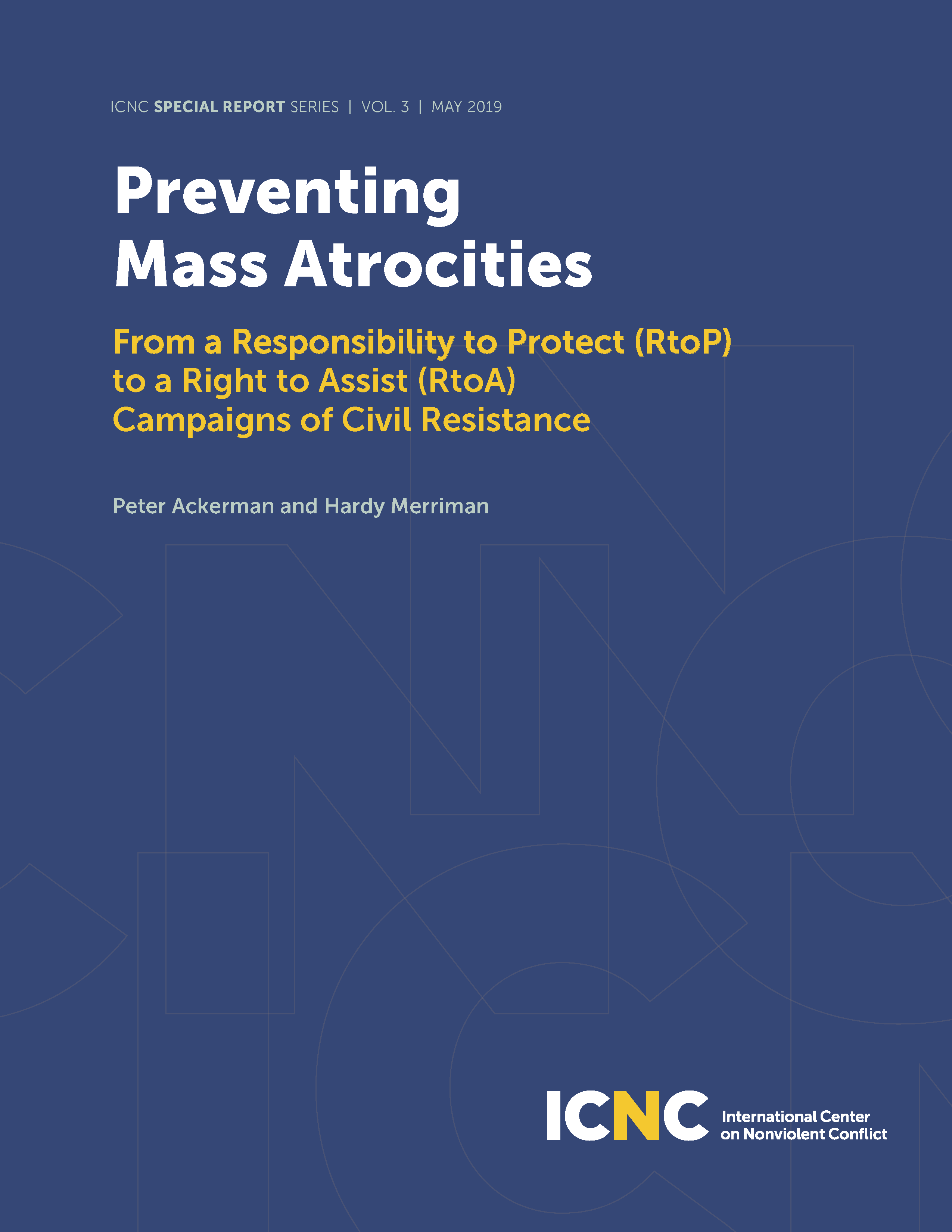
The United States and “Regime Change” in Iran
The U.S. government has historically promoted regime change through military invasions, coups d’etat and other kinds of violent seizures of power by an undemocratic minority. Nonviolent “people power” movements, by contrast, promote regime change through empowering pro-democratic majorities. Unlike fomenting a military coup or supporting a military occupation, which are based upon control over the population and repression of potential political opponents, nonviolent civil insurrections—as a result of being based upon a broad coalition of popular movements—are impossible for an outside power to control.
As a result, the best hope for Iran comes from Iranian civil society, which, despite the repression from its government and the negative consequences of sanctions and threats against its country from Washington, is quite capable of eventually bringing down the regime and establishing a more just and democratic society. Freedom will some day come to Iran. When it does, however, it will be in spite of—rather than because of—the policies of the United States.
rightweb.irc-online.org, August 2007



